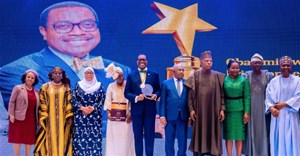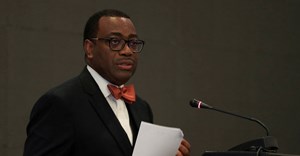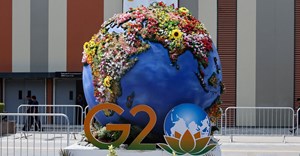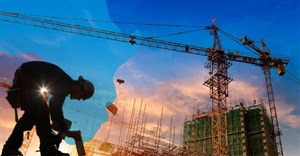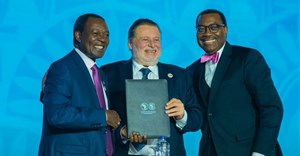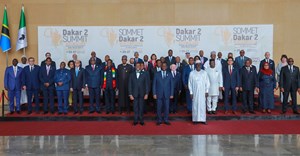Korea to help Africa compete in fourth industrial revolution

The chairman of the African Union and Rwandan President, Paul Kagame, noted that holding the Annual Meetings in Busan presents a unique opportunity to enforce the growth cooperation between Africa and the Republic of Korea.
Kagame’s message came at the opening ceremony of the 53rd Annual Meetings of the African Development Bank: “Africa is no longer the sleeping lion. Korea is happy to share its industrial experience with the continent. The theme of the annual meetings is appropriate for the industrial transformation of the continent, and in facilitating the sharing of experiences with Korea and other partners.”
African Development Bank president, Akinwumi Adesina, thanked the Government of Korea for hosting the Bank’s Annual Meetings. He recalled Korea’s transformation from a poor nation 60 years ago to the 11th largest economy in the world, noting the contribution of industrialisation to its transformation.
“Today, Samsung and LG television and phones dominate globally, while Korean cars are everywhere. Korea was deliberate and consistent in its industrial drive like China and Japan. Africa must learn from Korea’s industrialisation and the equally remarkable experiences of China, Japan, and other parts of the world.
Africa needs to industrialise and add value to everything that it produces – from agriculture, to minerals, to oil, gas and metals.
“Africa must fast-track industrialisation. That is why the African Development Bank plans to invest $35billion over the next 10 years in its focus on industrialisation. The Bank’s industrialisation strategy hopes to help Africa raise its industrial GDP from a little over $700billion today to over $1.72 trillion by 2030. This will allow Africa’s GDP to rise to over $5.6 trillion, while moving GDP per capita to over $3,350.
“The formula for the wealth of nations is clear: rich nations add value to all they produce; poor nations simply export raw materials. Africa needs to industrialise and add value to everything that it produces – from agriculture, to minerals, to oil, gas and metals. Africa needs to move from the bottom to the top of the global value chains.”
Young Africans can transform the continent given the chance. He described the experience of Clarisse Iribagiza, a young Rwandan woman who earned a master’s in Information and Communications Technology from the Kigali Institute of Science and Technology, a program supported by the bank. With a modest contribution from the Government of Rwanda, Iribagiza launched an ICT business that she recently sold for $10 million. She is now a member of the Bank’s Presidential Youth Advisory Council.
Africa’s potential
To unlock Africa’s potential through investment, the bank has created the Africa Investment Forum, a transactional platform created by the African Development Bank with its partners to leverage global pension funds and sovereign wealth funds and other institutional investors to significantly invest in Africa. This new investment marketplace will set sail from November 7-9, 2018 from Johannesburg, South Africa.
Dong Yeon Kim, Deputy Prime Minister and Minister of Strategy and Finance of the Republic of Korea, said a new approach was urgently needed. He referred to Uncle Tom’s Cabin, a 19th-century American novel written by Harriet Beecher Stowe that envisioned a promising future for Africa.
“Harriet Stowe was right. Very surprisingly, we now witness strong evidence of Africa flourishing, just as she predicted. Growth in the region over the past 20 years was 3% higher than the previous period, and the absolute poverty ratio decreased to two thirds of what it was two decades ago.”
Kim stressed the need for innovative industrialisation to translate Africa’s potential into economic prosperity.
“Industrialisation policy should take into account the unique conditions of each country. New technologies can provide leapfrogging opportunities by speeding up the industrialisation process and creating new value.”
Smart infrastructure, he said, presents a promising area for Korea’s contribution. “Smart infrastructure can provide a new solution to Africa’s shortage in roads, airports and harbours. It allows optimal use of resources and can even replace traditional infrastructure. Africa is already producing substantial outcomes in this area. Going forward, Korea is strongly committed to share its rich expertise and experience as Africa’s close partner.”
Source: African Press Organisation

APO is the sole press release wire in Africa, and the global leader in media relations related to Africa. With headquarters in Dakar, Senegal, APO owns a media database of over 150,000 contacts and the main Africa-related news online community.
Go to: www.bizcommunity.com/PressOffice.aspx?cn=apogroup


